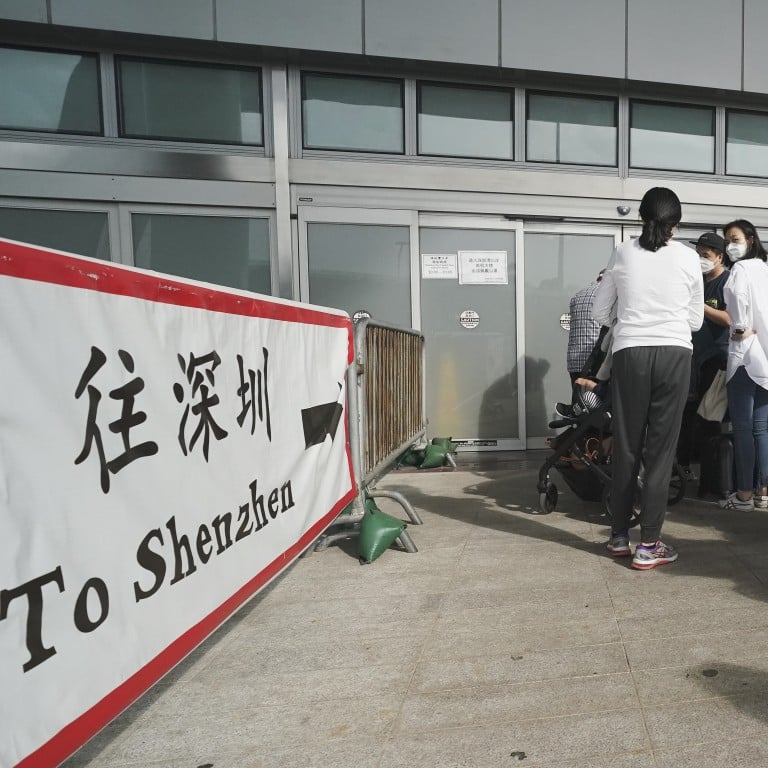
Coronavirus: quarantine extended to 21 days for Hongkongers visiting Shenzhen, following emergence of mutated strains
- Tightening of Covid-19 rules by Guangdong authorities effectively ends hopes of the border reopening with mainland China in the short term
- Seven-day extension to mandatory quarantine came into force on Thursday
The Health Commission of Guangdong Province ruled on Thursday with immediate effect that Hong Kong residents would be required on entry to quarantine in a hotel for two weeks, before spending a further seven days confined for observation in their homes or other accommodation.
During the observation period, arrivals must take a polymerase chain reaction (PCR) test on the first and the last day of their confinement to ensure mutated strains of the coronavirus do not enter the mainland community from Hong Kong.
Hong Kong to shorten Covid-19 quarantine for fully vaccinated travellers: source
Hong Kong businesses were disappointed at the tightening of the quarantine arrangements, saying they were resigned to further delays to the lifting of border restrictions.
“It is unimaginable when the border will be restored,” said Danny Lau Tat-pong, honorary chairman of the Hong Kong Small and Medium Enterprises, a 1,700-member chamber.
“Business owners and operators including myself have waited for more than a year and are still waiting.”
Hong Kong has closed all but three border checkpoints since February last year to contain the coronavirus.
The resulting toll on the economy has been heavy, with tourism wiped out and business travel minimal.
Lau said cross-border businesses had been significantly disrupted, forcing Hong Kong operators to manage their factories in Dongguan remotely and restricting meetings with clients over the border or overseas to online communication.
He has not been able to visit his own facility in Dalang, which produces aluminium curtain walls, since January last year.
Lau said he believed the recent discovery of more infectious variants of the coronavirus in the Hong Kong community was behind mainland authorities tightening infection controls.
Fears of variants from Brazil and South Africa – N501Y and E484K – spreading through the city have taken hold since the first two cases of such infections were discovered locally.
A 29-year-old engineer from Dubai and his 31-year-old female friend were confirmed as infected on April 17 and 18 respectively.
More than 1,000 people deemed as close contacts of those linked to the initial infections have been ordered to serve three weeks of quarantine.
Inbound visitors to Hong Kong from next week will be allowed to serve shorter quarantine periods if they adhere to certain conditions.
On the same token, Chinese Manufacturers’ Association honorary president Dennis Ng Wang-pun urged mainland authorities to relax the 21-day quarantine requirement for Hongkongers who had been inoculated.
“Businesses cannot operate remotely forever, we still have to meet clients and visit factories in person,” he said.
“The border reopening will be crucial to Hong Kong’s economic recovery, and will directly throw a lifeline to tourism, retail and food and beverage sectors.”
As of Thursday, Hong Kong has confirmed 11,798 coronavirus infections, with 210 related deaths.

